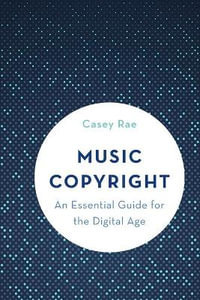Engaging and innovative,
User Generated Law offers a new perspective on the study of intellectual property law. Shifting research away from the study of statutory law, contributions from leading scholars explore why and how self-regulation of intellectual property rights in a knowledge society emerges and develops.
Analyzing examples of self-regulation in the intellectual property law-based industries such as collective management of copyrights and patent rights, open source licenses, domain name law and enforcement of intellectual property rights, this book evaluates to what extent user generated law is an accurate model for explaining and understanding this process. It also considers its interaction with the framework conditions of the statutory law upon which it is built and the subsequent redefinition of legal positions for affected parties.
With its original stance on understanding and construing intellectual property law, User Generated Law will appeal to students and scholars studying in this area as well as in legal governance and legal theory. Its evaluative approach also lends itself to policy makers and practitioners.
Contributors include: O. Kokoulina, B. Lundqvist, M.J. Madison, T. Minssen, C.S. Petersen, T. Riis, O.-A. Rognstad, J. Schovsbo, S.F. Schwemer, H. Udsen, E. van Zimmeren
Industry Reviews
'User Generated Law contains fascinating insights into how models of self-regulation in the IP sector have developed, and how they operate within the State enacted framework. The authors take a number of case studies within different IP fields including collective management and extended collective licenses, cross-border online licensing, patent pools and clearinghouses, and domain names to examine what forces are at play that encourage the emergence of 'autonomy spaces', spaces that the authors argue are present where public policy considerations play only a small role in the overall framework. It is in these spaces that the self-regulatory models can thrive. This book contains thought-provoking contributions that should cause the reader to review our IP framework and to re-think how user-generated law might operate to the benefit of the stakeholders.' -- Charlotte Waelde, University of Exeter, UK
'As the classic science fiction film Tron notes, we need to fight for the users. This collection does just that in its exploration of user generated law. In particular, it examines the rise of the commons open source licensing, patent clearinghouses, patent pools, the private regulation of internet domain names, and cross border licensing. The collection is particularly significant given the significant evolution of user generated law in our knowledge ecology.' -- Matthew Rimmer, Queensland University of Technology, Australia
























